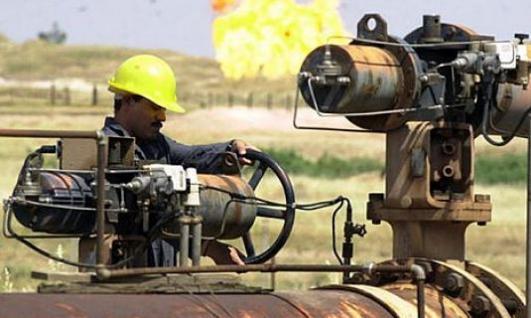
OIL: KURDISTAN'S COURSE

An oil tanker carrying more than a million barrels of crude from Iraqi Kurdistan across the Mediterranean Sea this weekend signals a shift in Iraq's political and economic landscape.
The ship is bearing the first load of oil to be piped from Iraq's semiautonomous Kurdistan region and sold on world markets. Its voyage in turn represents an act of defiance by Turkish and Kurdish authorities against Iraq's newly elected central government.
The oil being sold by Kurdistan has been piped to Turkey, where the government decided to allow international sales despite Baghdad's protests.
Iraqi President Nouri al-Maliki, whose party won re-election earlier this month, says Kurdistan may not legally sell the crude on its own, and must market it through Iraq's Baghdad-controlled oil-sales system, which would then pass a portion of the revenue on to Kurdistan.
The Iraqi oil ministry called the recent shipment an "illegitimate deed" in a Friday statement, and said it would file a complaint against Turkey in the International Court of Arbitration.
The government of Kurdistan, which is part of the Iraqi state but has its own governing authority and military, was defiant on Friday. "This is the first of many such sales," the Kurdish Regional Government, known as the KRG, said in a statement. "The KRG will continue to exert its rights of export and sell oil independently."
Kurdistan has been an oasis of safety and stability in Iraq since the early 1990s, after U.S. military intervention kept Saddam Hussein's forces out of the region. Since then, its government has welcomed foreign companies to develop untapped oil fields. Kurdish leaders say the Iraqi constitution gives them the right to control pumping and exports.
By selling its own oil, the Kurdish government is less reliant on payments from Baghdad--and Baghdad has less financial leverage over Kurdistan.
Oil shipments are also a boon for the Western companies that have been spending billions of dollars to develop Kurdish fields with little ability to recoup their investments.
With an estimated 45 billion barrels of reserves, Kurdistan has long been an attractive target for wildcatters. But they have had little ability to sell what they produce, beyond moving a relatively small volume from the oil fields via trucks.
In recent weeks, oil companies with Kurdish assets, including Norway's DNO International ASA and UK-listed Gulf Keystone Petroleum Ltd., have said delays in payments for oil they produce in Kurdistan would affect their profit.
Todd Kozel, chief executive of Gulf Keystone, said the shipment is "excellent news."
"The pipeline will allow for greater volumes and greater oil sales. All parties involved will see the best interests for the people involved," he said.
The oil shipments come after several rounds of failed negotiations between Baghdad and the Kurdish government.
For years, U.S. and Turkish officials have pushed Baghdad and the KRG to reach an export deal. The most recent round of talks began in December, after the Baghdad government objected to Kurdish efforts to start crude flows from a pipe that feeds into an Iraqi-Turkish pipeline.
Late that month, Kurdish authorities began piping some crude to Turkey as the parties wrangled over export rights. Repeated rounds of negotiations failed, since the Kurds refused to give up control over international sales and Baghdad insisted on having such control, say people briefed on the meetings.
Then, early this year, the Baghdad government suspended budget payments to Kurdistan for March, April and May. The region has received only $1.3 billion of the $4.25 billion it needed to pay its employees this year, according to Kurdish officials. Unpaid Kurdish workers have protested across the region for months.
Kurdish Prime Minister Nechirvan Barzani said in March that his region would start exporting 100,000 barrels a day in April. KRG officials forecast that exports would hit two million barrels by the end of January and ramp up to as many as 12 million barrels by December.
With Baghdad continuing to withhold payments, the Kurdish authorities moved to generate income by selling oil that had been sitting in storage in Ceyhan.
The move could have ripple effects in Baghdad by prolonging already-sensitive negotiations to form a multi-ethnic, cross-sectarian government. Until those talks--which could take months even without the Kurdish friction--are complete, the government may not be able to undertake new security initiatives, at a time when sectarian fighting is spiking.
"This is something that could put a serious crimp in government formation," said Michael Knights who studies Iraq expert at the Washington Institute for Near East Policy.
The sale has also created friction between Baghdad and Turkey, which had weak relations with Mr. Maliki's government since the last parliamentary elections in 2010.
But on Friday, Turkish Energy Minister Taner Yildiz said the sales don't go against Iraq's national interest and sovereignty, despite what the Baghdad government says.
"Iraq itself is the owner of the crude that has been sold," Mr. Yildiz said.
wsj.com





